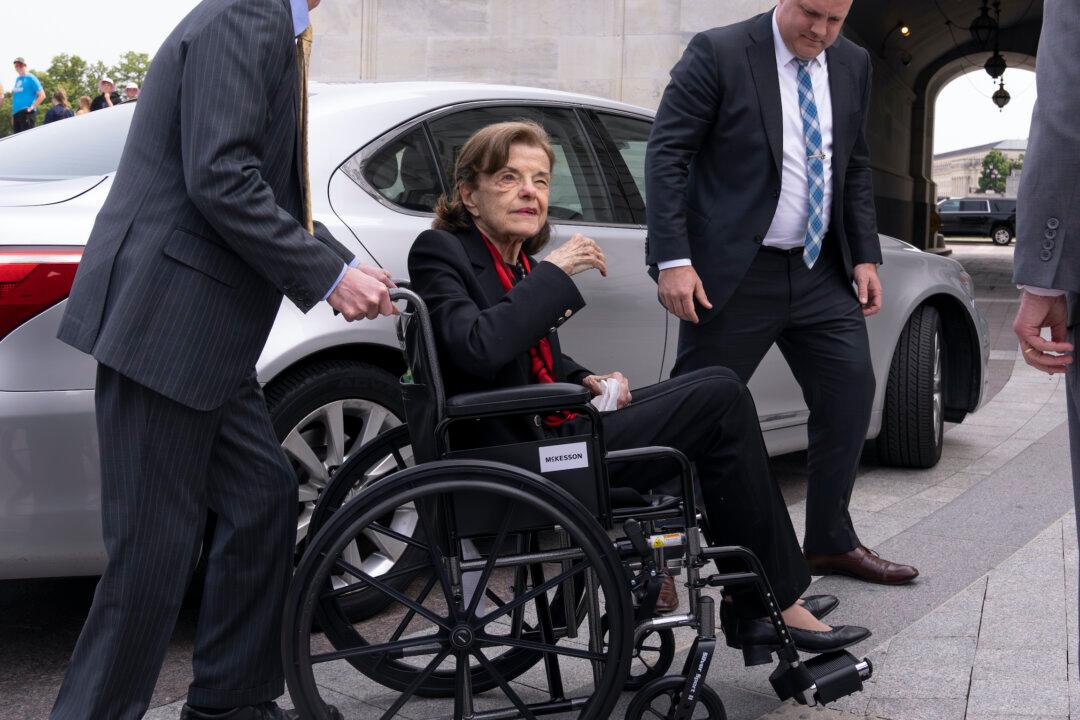Sen. Dianne Feinstein’s office disclosed on Thursday details about her health condition, as she returned to the Senate after a nearly three-month-long absence due to shingles.
Feinstein (D-Calif.), 89, was suffering from shingles virus this year that led to the emergence of two complications, Ramsay Hunt syndrome and encephalitis. Ramsay Hunt syndrome can lead to partial facial paralysis.





